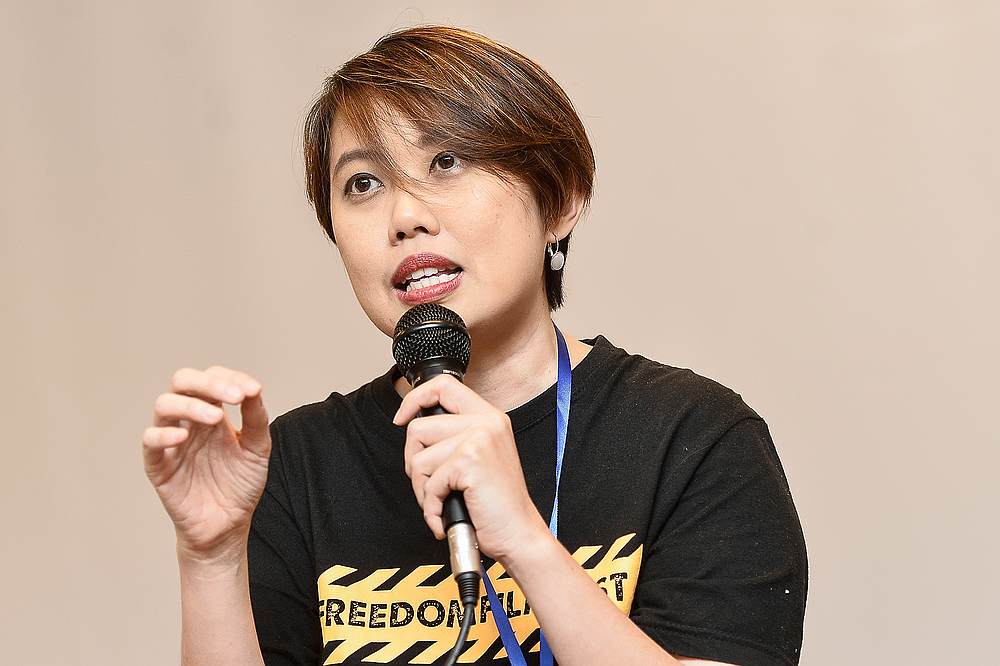PETALING JAYA, Sept 28 — Two film producers, one of whom is a third-generation family member of May 13 riot victims, said a reconciliation between those affected and the rioters is possible, but will only happen if those who come forward to share their stories are protected by law.
Lau Kek Huat and Tham Seen Hau, while agreeing that there should be some form of reconciliation of the incident, pointed out it will be a long-term process and laws were needed to protect those who are willing to speak up.
“We need more families of victims to come out and share their story. But we also need stories from the other side, people who killed. We need those people to come out and speak about how they got involved and why they were involved.
“But if they come out and tell (their side of the story), they will be put in a very difficult situation (they may face the possibility of being arrested),” said Lau.
Lau said he agrees to the reconciliation so that those who were circumstantial victims can clear their names — those who were accused of being racist, when in actual fact, there were “forced” by those who were rioting to join the riot.
He gave an example of a Chinese man who he had interviewed previously and was directly involved in the riots.
Lau said, on the day of the incident, the man was just a hawker selling fruits in front of a cinema.
“He told me that he knew something was happening, but he wasn’t sure until the Chinese mob came and said they want to kill the Malays in the cinema. They told him that he must join them, because everything is gone and houses were burnt.
“He did join. He did take up a knife and went inside the cinema and killed.
“But was this uncle a racist? Can we call him a racist? These are stories that must come out,” he said.

He drew comparisons to how several Asian countries that faced similar racial riots but now have laws to protect these group of people from being harmed by the media, the public or authorities.
“We also need laws to protect their families from being harmed.
“Our government is very far from that, but that is the direction we should be moving towards,” said Law.
He also cited what happened in South Africa, how the late Nelson Mandela, president of South Africa from 1994 to 1999, had set up the Truth and Reconciliation Commission, a court-like body, to help heal the country and bring about a reconciliation of its people by uncovering the truth about human rights violations that had occurred during the period of apartheid.
“The moment Mandela became president, he had setup that commission to encourage people to come out to speak in exchange for not having to face trial, as long as they came forward,” he said.
Lau, who is based in Taiwan, became interested in documenting Orang Asli issues, and subsequently was moved to dig deeper into the origins of racial tension in the country.

While Tham, whose family were May 13 riot victims, agreed with Lau, she said there is also another issue to look into — whether the victim’s family would agree to giving immunity to those involved in the riots.
“If you talk to my family members, they will probably tell you, never — because to them, they can never accept (the rioters to be granted) immunity.
“It is because it is so difficult for them to swallow. If you had five members in your family who died, how can you accept it?” said Tham.
Tham’s mother is part of the Ng family of 10 who lived in Kampung Baru, Kuala Lumpur, who lost five family members to the May 13 riots.
It has been 48 years since the remaining family members spoke to each other about that day.
While Tham acknowledged these obstacles in achieving the said reconciliation, she said this is the beginning of a process to desensitise the May 13 incident.
“Instead, I see this the beginning of us working towards creating a safe space for more dialogues regarding the May 13 incident,” Tham added.
She added that, through her interviews with her family members, her mother, and siblings, the government should at least erect a monument to honour the lives perished.
“Or maybe a ceremony, or prayers for those who died due to the riots.
“It would be meaningful for the victims that you (the government) recognise them,” she said.
The duo was speaking at a dialogue session after the screening of Tham’s 50 Years of Silence documentary, one of the last acts of the Freedom Film Festival 2019.
In July the government shot down a proposal to establish a truth and reconciliation commission for the May 13, 1969 riots.
De facto Law Minister Liew Vui Keong stressed that the government would focus instead on strengthening unity as well as the country’s economy.
*Note: A previous edition of the story contained errors which has since been corrected.



















